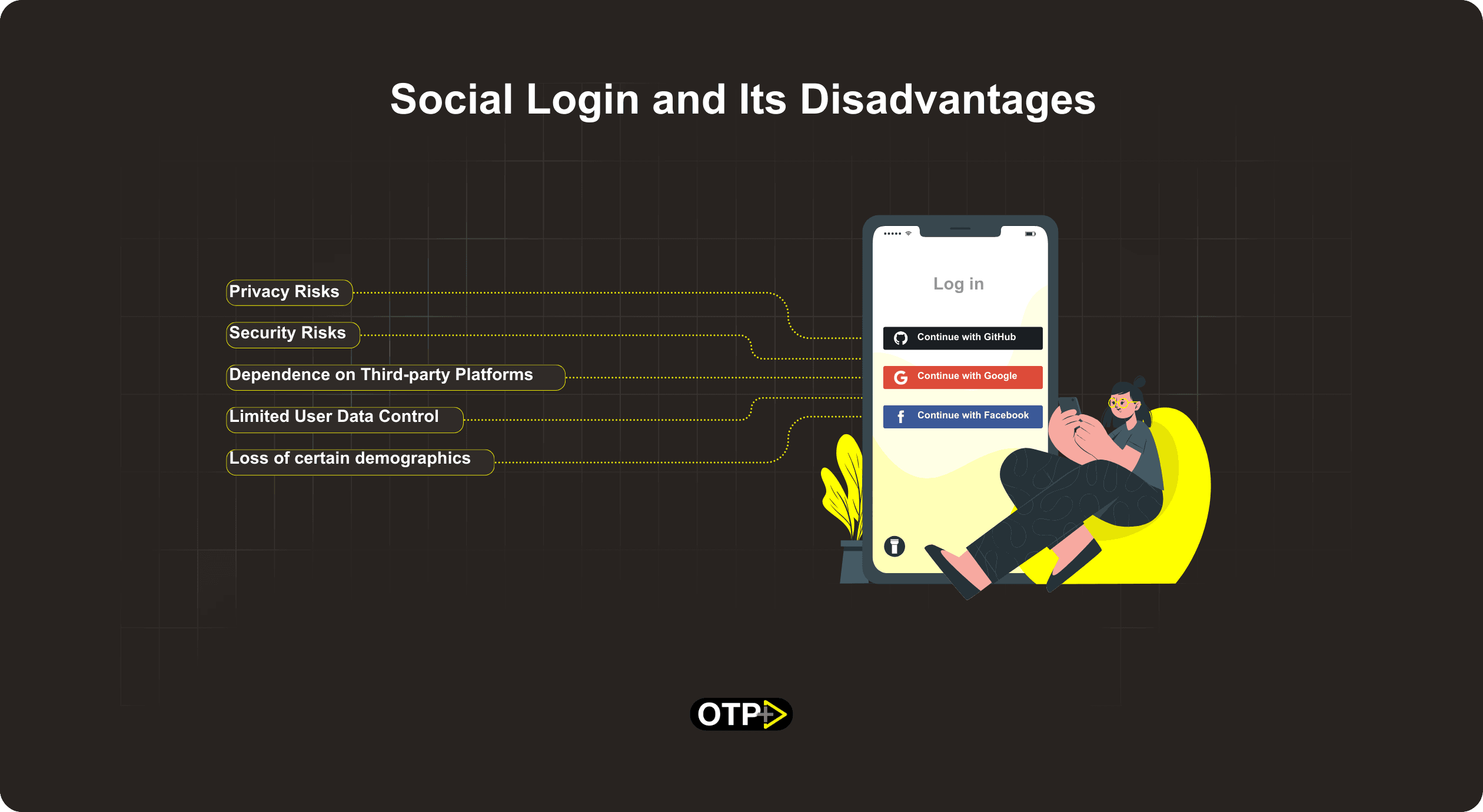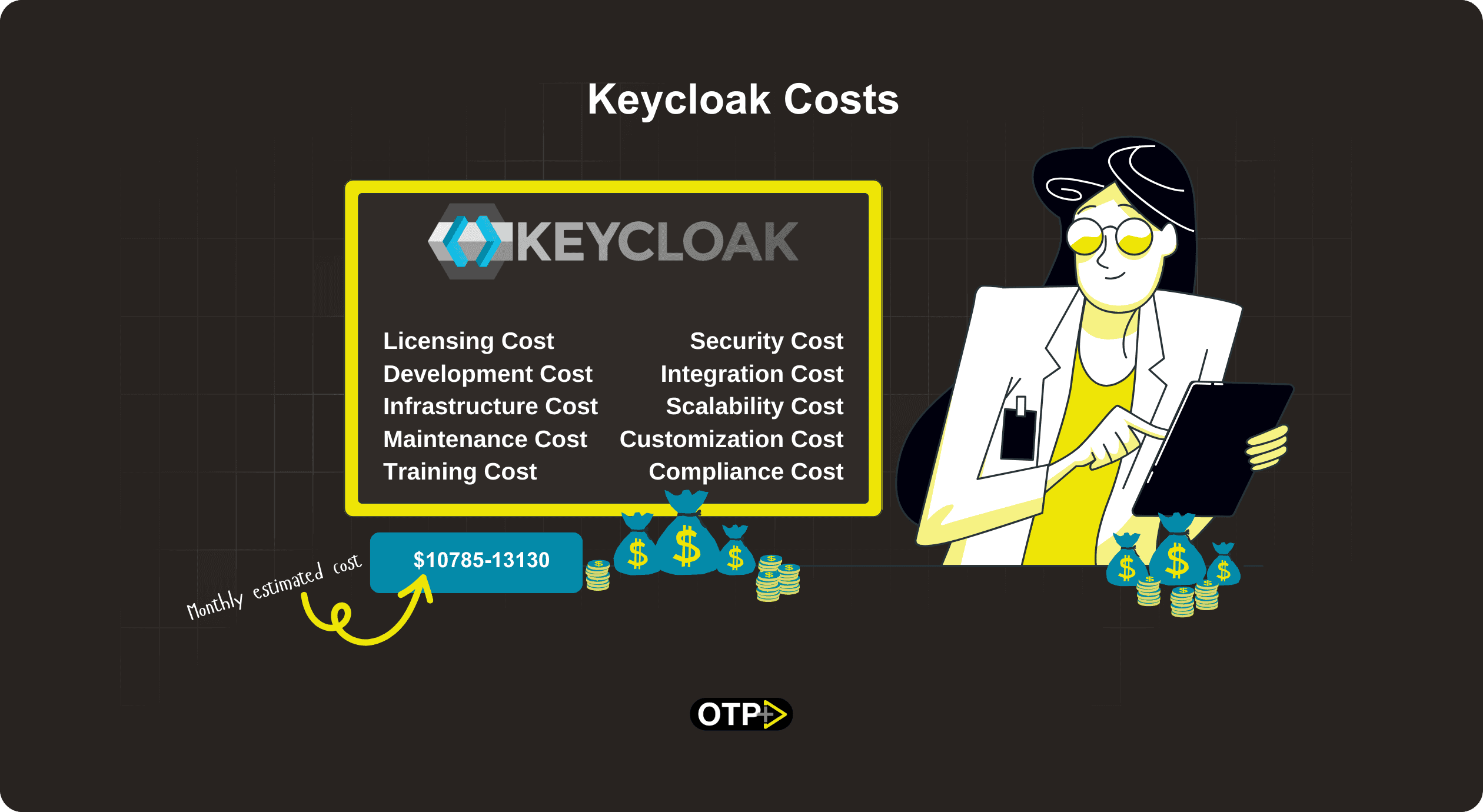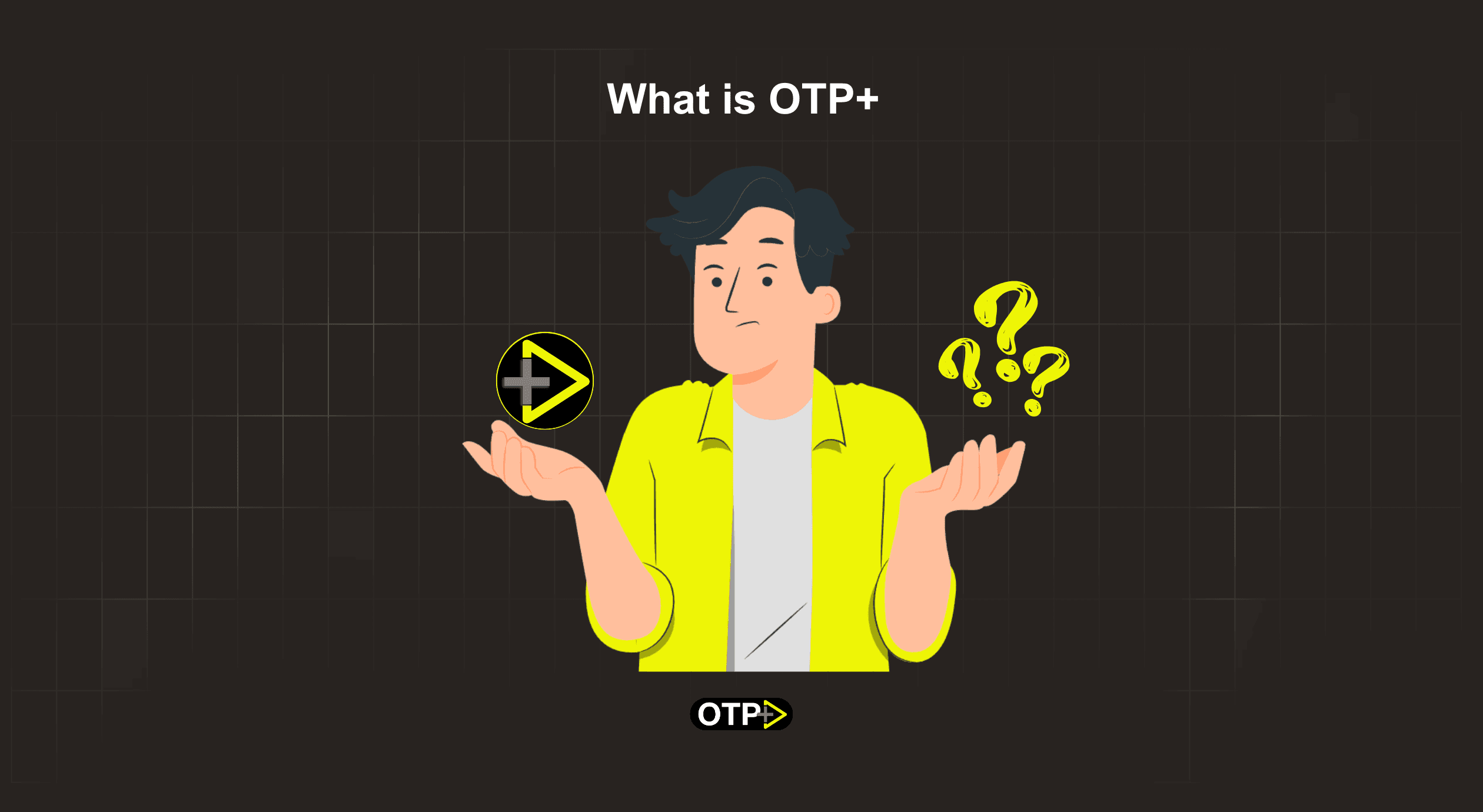How To
What is Social Login and Its Disadvantages?
Vijay Kakadia
•
Apr 9, 2024
•
5
min read
Share
Social login, also known as social sign-in, is a feature that allows users to log into websites or applications using their existing social media accounts, such as Facebook, Google, or Twitter, instead of creating a new account specifically for that website. While social login offers various benefits, including convenience and streamlined user experiences, it also comes with several disadvantages that users and businesses should be aware of.
How does Social Login Work?
Social login operates by leveraging OAuth (Open Authorization) protocols, allowing websites to access users' social media profile information with their permission. When users log in using their social media accounts, the website or application requests access to specific data from the respective social media platform, such as their name, email address, and profile picture.
Advantages of Social Login
Convenience for Users
One of the primary advantages of social login is its convenience. Instead of creating a new account with a username and password, users can click a social login button and authenticate themselves using their existing social media credentials.
Data Collection and Personalization
Social login enables businesses to gather valuable user data from social media profiles, such as demographic information and user interests. This data can personalize the user experience and target relevant content or advertisements, enhancing engagement and conversion rates.
Reduction of Password Fatigue
Social login reduces user password fatigue by eliminating the need to remember multiple usernames and passwords for different websites. This simplifies the login process and reduces the likelihood of users forgetting their login credentials.
Disadvantages of Social Login
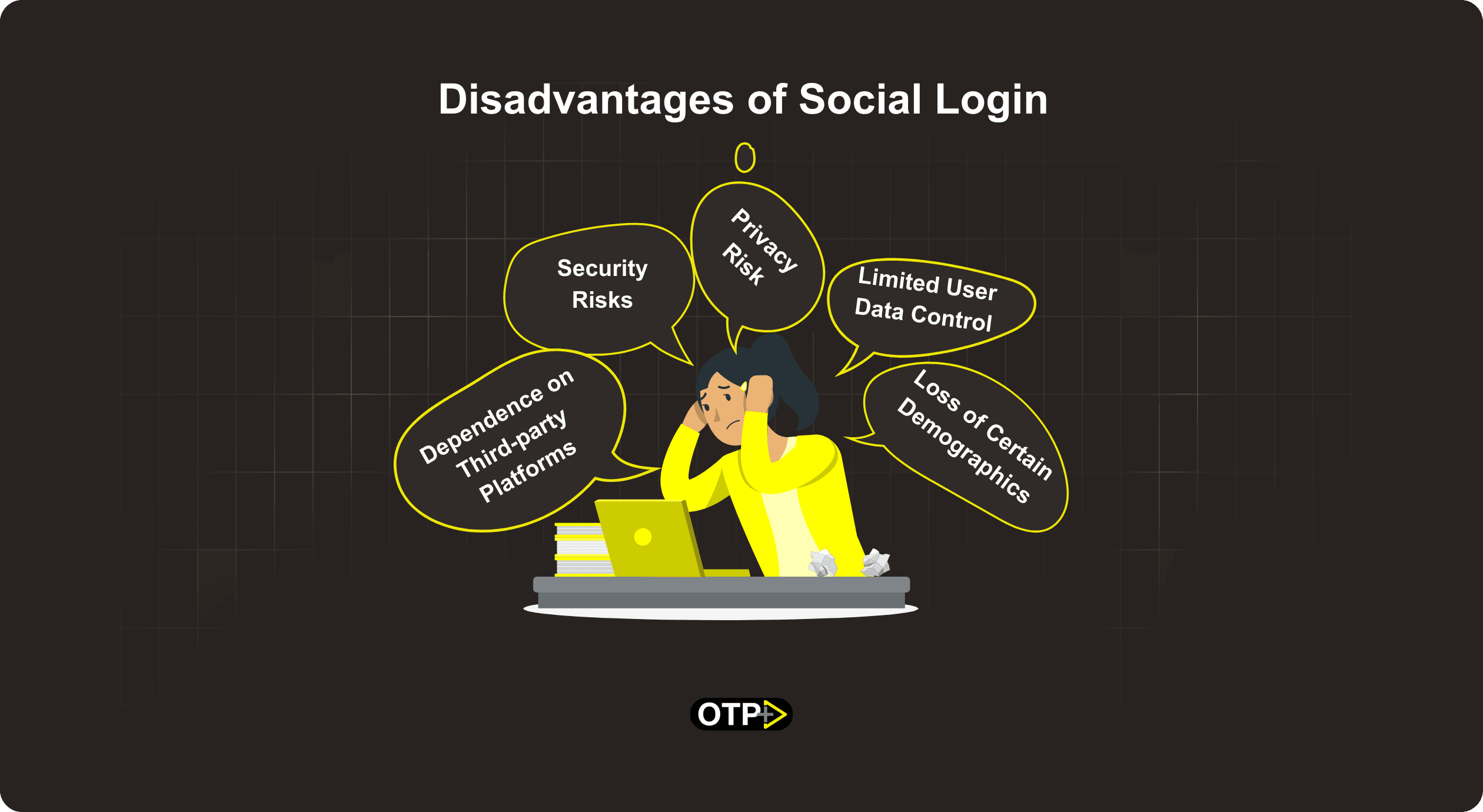
1: Loss of Certain Demographics
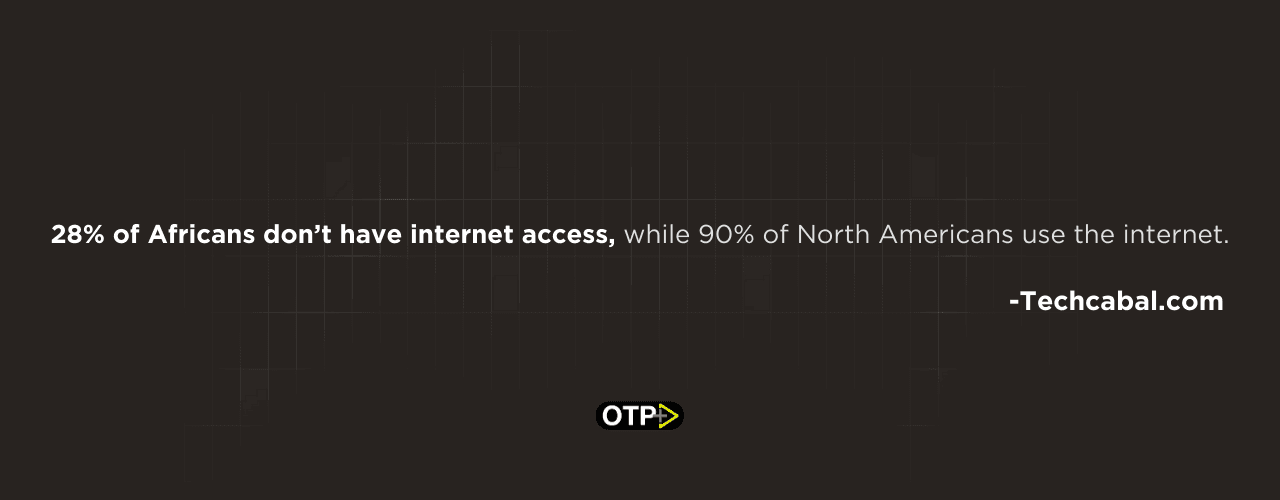
Internet penetration rates differ across countries. For example, while 90% of North Americans use the internet, 28% of Africans don’t have internet access in 2023.
Think about it this way: only some people are on social media. In places where internet access is rare, like rural areas or certain parts of Africa, many don't use platforms like Facebook, Google, or Twitter. If your app only lets people log in with social media accounts, you might exclude many potential users who need those accounts. That's like throwing a party but only inviting some!
2: Privacy Risk!
According to Forbes, In 2019, nearly 26 billion records were leaked from sites like Twitter and LinkedIn.
Here's the deal: when folks sign in with their social media accounts, they share their info. But here's the kicker: that info could be used in ways they didn't expect. It's like giving away your secrets without realizing it! Plus, there are rules about privacy, like GDPR, that businesses need to follow. If they mess up and don't keep folks' info safe, they could get in big trouble with the law. So, while social login might seem easy, it's essential to consider privacy and find ways to keep folks' info safe and sound.
No such thing as FREE! Privacy is the hidden cost of FREE social identity.
3: Security Risks
Despite its convenience, social login poses significant security risks. By relying on third-party authentication, users are exposed to potential security vulnerabilities, including data breaches, identity theft, and unauthorized access to personal information.
Opening social accounts is relatively easy, so they are heavily used for fraud and spam. Even if the providers detect and block the ‘bad’ accounts, it may take some time, but the deed may have been done by then.
So, fake accounts could become a significant issue because they affect a lot of sales/marketing intelligence.
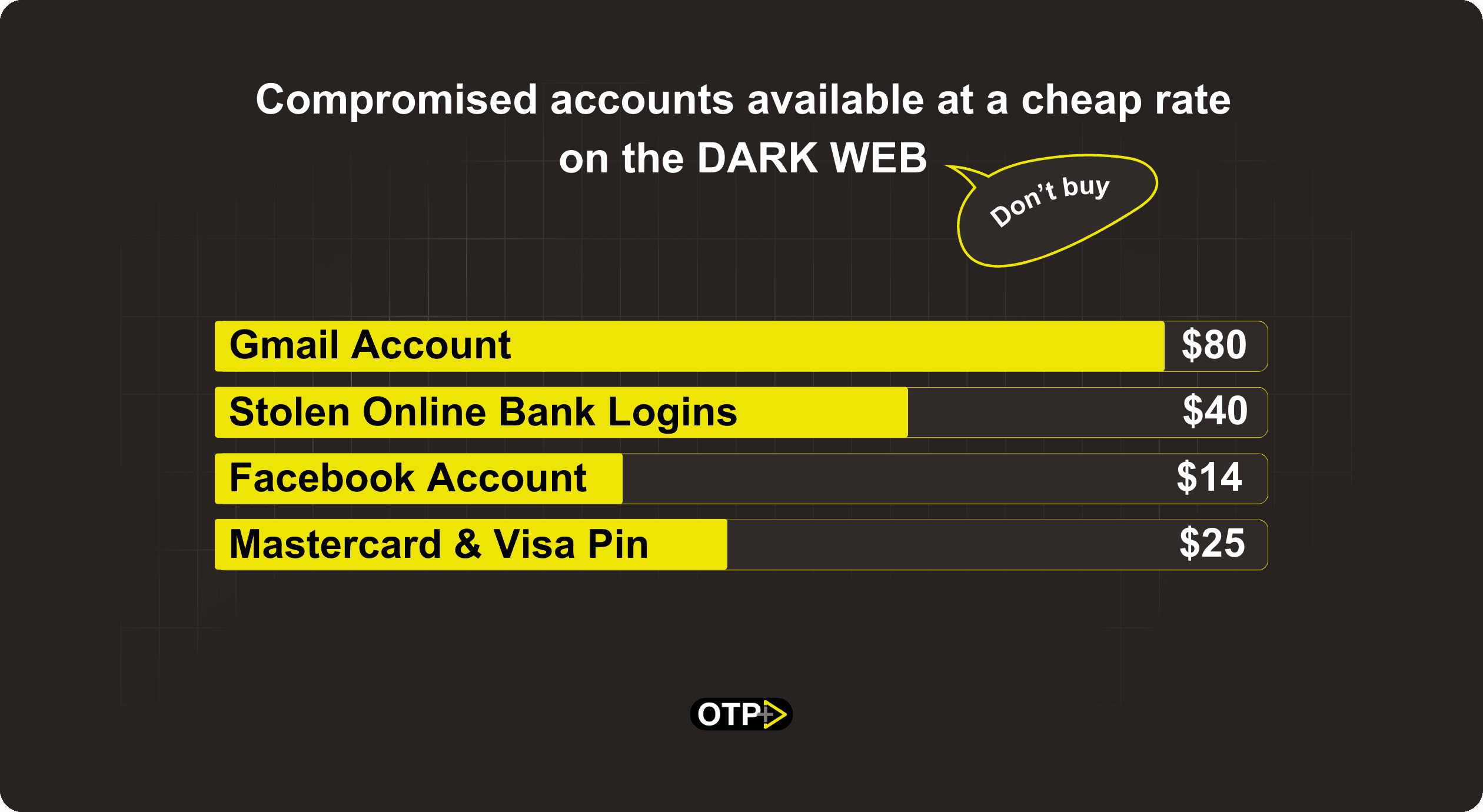
4: Dependence on Third-party Platforms
Social login introduces a dependency on third-party authentication platforms, such as Facebook or Google. Many platforms, like Facebook, have agreements with third-party entities that access some of your data. These entities act as service providers for marketing, analytics for search engines, and payment processing. As a result, both the platforms and third-party entities engage in practices that compromise user privacy.
5: Limited User Data Control
Users logging in using their social media accounts have limited control over their data and social media platforms. This lack of control raises concerns regarding data privacy, transparency, and the ability to effectively delete or manage user information.
Now, Let’s break down each disadvantage of social login in detail.
Loss of Certain Demographics
Imagine you've built a fantastic app or website that you're proud of. You're excited to share it with the world and want as many people as possible to use it. But here's the thing: not everyone is the same, and not everyone has the same access to technology or uses social media in the same way.
Let's break it down.
Variety of Users
In today's world, there's a vast diversity in how people use technology. While many folks are active on social media platforms like Facebook, Instagram, or Twitter, plenty of others either don't use these platforms or use them infrequently.
Access to Technology
Access to technology varies significantly around the world. Smartphones are ubiquitous in urban areas, with good internet connectivity and high social media usage. However, access to the internet or even essential smartphones may be limited in rural or remote areas. In some regions, people may rely on older or feature phones rather than smartphones.
Social Media Adoption
Even within regions with widespread internet access, some demographics are less likely to use social media. This could include older adults, people from lower-income backgrounds, or individuals with limited digital literacy. For example, while younger generations may be active on social media, older adults may be less inclined to use these platforms.
Cultural and Regional Differences
Cultural and regional differences also play a significant role in social media adoption. Social media may be less prevalent or used differently in some cultures or communities. For example, cultural norms or privacy concerns may discourage people from using social media platforms in certain parts of the world.
Impact on User Base
When you rely solely on social login for your app or website, you limit your user base to those with social media accounts and are comfortable using them to log in. This means you could be missing out on a significant portion of the population who either don't use social media or prefer to avoid using it to log into other platforms.
Exclusion of Underserved Communities
By prioritizing social login, you may unintentionally exclude underserved communities or marginalized groups who may already face barriers to accessing technology or participating fully in the digital world. This can contribute to digital inequality and widen the gap between those with access to technology and those without access.
Importance of Inclusivity
Building inclusive digital experiences catering to diverse users is more important than ever in today's interconnected world. By offering alternative login methods, such as email or phone number authentication, alongside social login, you can ensure that your app or website is accessible to everyone, regardless of their social media usage or access to technology.
Privacy Risk!
Data Sharing
When users log in to your app or website using their social media accounts, they grant permission for you to access certain information from their profiles. This might include their name, email address, profile picture, and even their list of friends or contacts. While this data can be valuable for personalizing the user experience, it raises concerns about privacy and data sharing.
Third-Party Access
By relying on social login, you outsource the authentication process to third-party platforms like Facebook, Google, or Twitter. While this can streamline the login process for users, it also means that these platforms have access to information about your users' interactions with your app or website. This raises questions about data ownership and control and the potential for third-party platforms to track users' activities across different services.
Targeted Advertising
Social media platforms make money by serving targeted advertisements based on users' interests and online behaviors. Users logging in to your app using their social media accounts may inadvertently expose themselves to targeted advertising within and on the platform. This can feel invasive to users who may not realize that their data is being used for advertising.
Data Security Risks
Storing and managing user data comes with inherent security risks. Users' personal information could be compromised if your app or website experiences a data breach or security incident. This damages the trust between you and your users and exposes you to legal and regulatory consequences, such as fines or lawsuits.
Lack of Transparency
Many users need to know how much their data is being shared and used when they log into apps or websites using social login. There often needs to be more transparency around what data is being collected, how it's being used, and who it's being shared with. This lack of transparency can erode trust between users and service providers and lead to concerns about data privacy and security.
User Consent Issues
While users technically consent to sharing their data when they use social login, many may need help understanding the implications of their actions. Consent forms and privacy policies can be long and complicated, making it difficult for users to make informed decisions about their data. This raises ethical questions about the validity of consent obtained through social login processes.
Security Risks Associated with Social Login
Data Privacy Concerns
Social login requires users to permit websites to access their social media profile information, raising concerns about data privacy and potential misuse of personal data by third-party applications.
Vulnerabilities to Hacking and Phishing Attacks
Social login systems are vulnerable to hacking and phishing attacks, where malicious actors attempt to steal users' login credentials or exploit security loopholes in the authentication process, putting users' sensitive information at risk.
Dependence on Third-party Platforms
Risks of Service Disruption
Relying on third-party platforms for authentication exposes businesses to the risk of service disruptions or outages, which can prevent users from accessing their accounts or completing transactions, leading to loss of revenue and trust.
Changes in Terms and Conditions
Changes in social media platforms' terms and conditions, such as updates to privacy policies or API restrictions, can impact businesses' social login functionality and accessibility, requiring them to adapt their systems accordingly.
Limited User Data Control
Lack of Transparency
Users often need more visibility and control over how their social media profile information is accessed, used, and shared by websites or applications that utilize social login. This leads to concerns about transparency and data protection.
Inability to Delete Data
Once users authorize access to their social media profiles for authentication purposes, they may need the option to revoke or delete their data from the third-party applications' databases, raising questions about data retention and user privacy rights.
Strategies to Mitigate Disadvantages
Implement Two-Factor Authentication
Say you already have social logins and want to prevent fraud. One option is to add OTP verification to high-risk social logins in sensitive areas of your site.
Businesses can implement additional security measures like two-factor authentication to verify users' identities and protect against unauthorized access. These measures can enhance security and mitigate the risks associated with social login.
Provide Clear Privacy Policies
Businesses should provide clear and transparent privacy policies that outline how user data is collected, used, and protected when using social login. This will ensure users are informed and empowered to decide about their privacy.
Offer Alternative Login Options
To address data privacy and security concerns, businesses can offer alternative login options, such as Phone number-based passwordless authentication or traditional username and password systems, giving users more control over their login credentials and personal information.
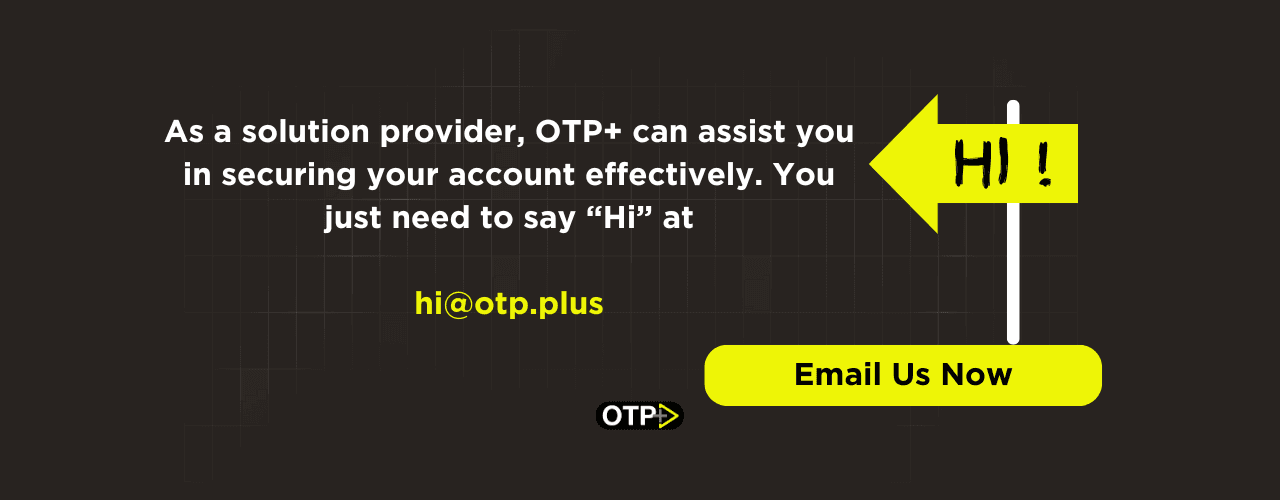
Conclusion
In conclusion, while social login offers convenience and efficiency for users and businesses, it also presents several disadvantages, including security risks, dependence on third-party platforms, and limited user data control. By understanding these drawbacks and implementing appropriate security measures and user privacy protections, businesses can leverage the benefits of social login while minimizing its associated risks.

